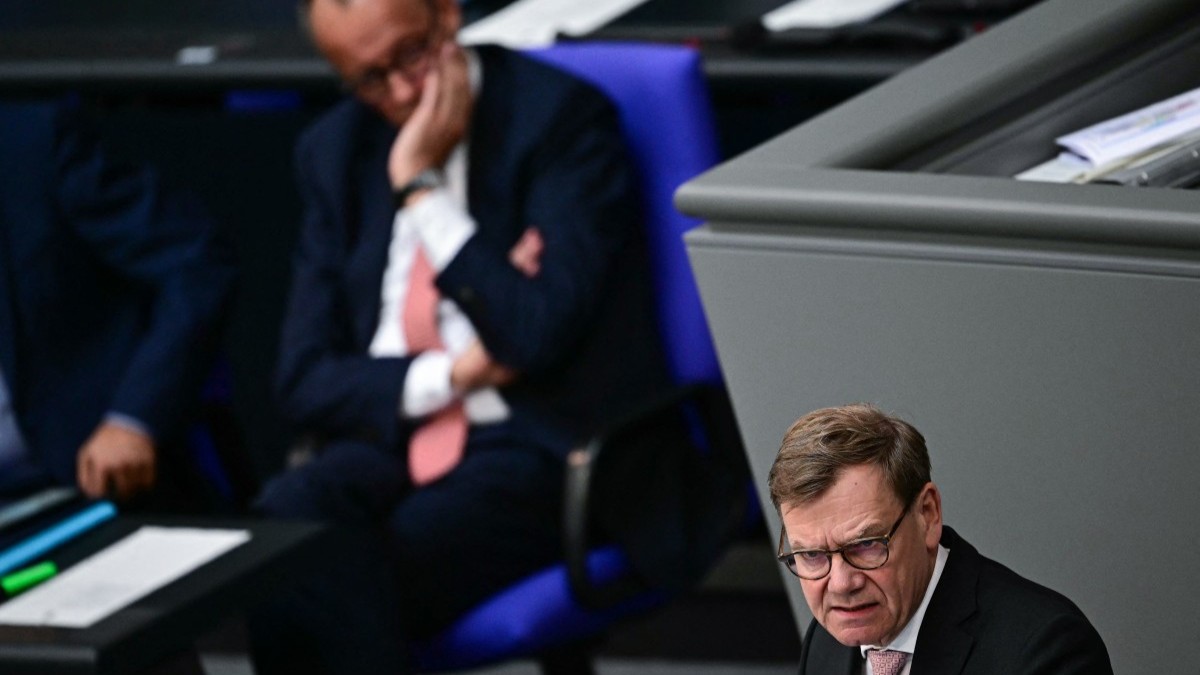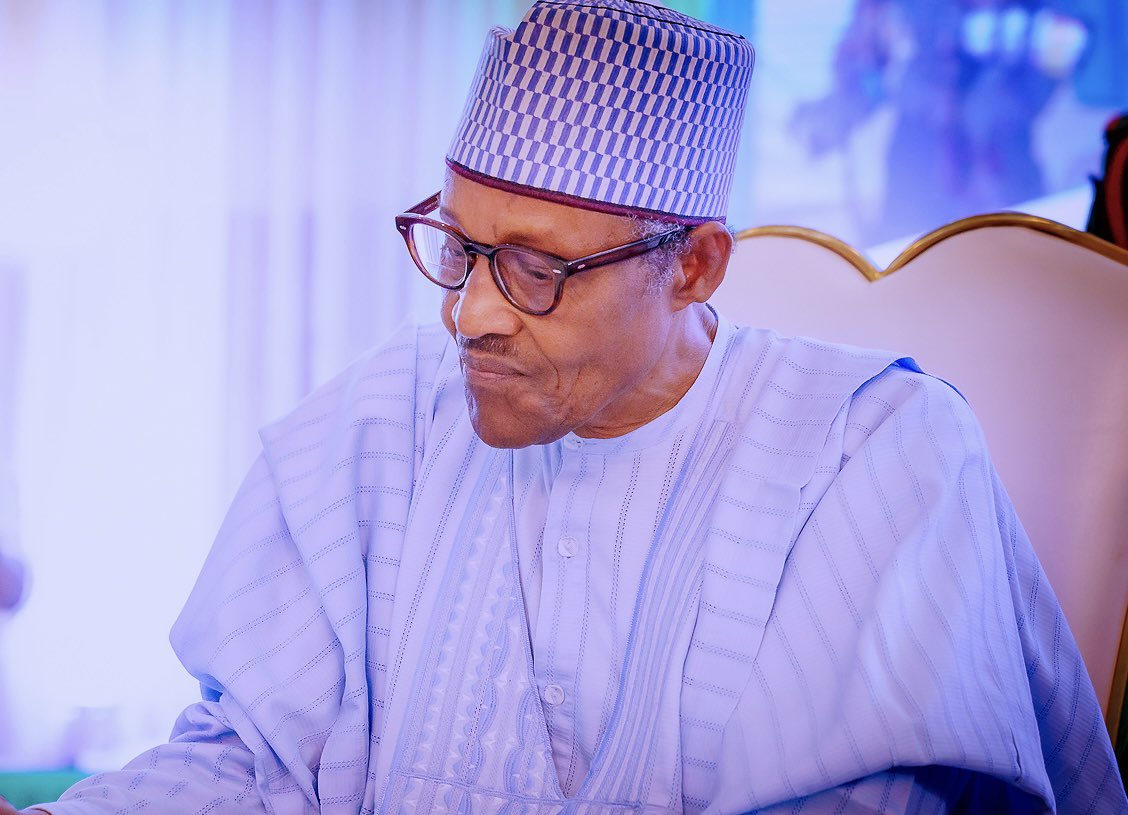This article was originally published by Radio Free Europe/Radio Liberty and is reprinted with permission.
The White House expects another American citizen to be released just hours after President Donald Trump welcomed back Marc Fogel, a teacher freed by Moscow after spending 3 1/2 years in a prison.
After welcoming Fogel back at a meeting at the White House late on February 11, Trump said a “very special” person familiar to the media be released on February 12. He would not elaborate on the person’s identity, nor did he confirm that it would be someone currently held in Russia.
Trump added that Fogel’s release was based on a “very fair” deal — he gave no details, and was an indication of Russia’s “good will in terms of the war” in Ukraine.
“I think this could be a very important element, a big part of getting the war over,” Trump said, standing next to Fogel, who had an American flag draped over his shoulders.
“I feel like the luckiest man on Earth right now,” Fogel said. “I want you to know I am not a hero in this at all. President Trump is a hero. These men who came over from the diplomatic service are heroes,” Fogel said. “I love our country and I’m happy to be back here.”
Fogel added that Russian President Vladimir Putin “was very generous and statesmanlike in granting me a pardon.”
He also thanked Steve Witkoff, a special envoy for Trump, who traveled to Russia on February 11, met with Putin, and accompanied Fogel on his flight back to the United States.
Earlier on February 11 the White House said the release of Fogel, who had been deemed wrongfully detained by the U.S. State Department, was a show of “good faith” by Russia.
Fogel had been sentenced to serve 14 years in a Russian jail after being detained by Russian police in 2021 for possession of medical marijuana he says was prescribed to him after back surgery. He was sentenced a year later.
“President Trump, Steve Witkoff, and the President’s advisors negotiated an exchange that serves as a show of good faith from the Russians and a sign we are moving in the right direction to end the brutal and terrible war in Ukraine,” a statement released by national-security adviser Mike Waltz said.
The White House described his release as part of an “exchange” but did not say what the United States had given in return.
Trump answered “not much” when he was asked by a reporter earlier on February 11 what Russia had received.
“We were treated very nicely by the Russians,” Trump said. “Actually, I hope that’s the beginning of a relationship where we can end that war.”
Fogel, who taught at the Anglo-American School in the Russian capital, had been passed over in previous U.S.-Russia prisoner swaps.
He was one of several Americans arrested in recent years in Russia on spurious charges and given stiff sentences. Washington has labeled most of these “hostages” of the Kremlin to be used as bargaining chips to free Russians locked up in the West after being convicted of serious crimes.
Fogel’s family in Pennsylvania, including his 95-year-old mother, had pushed for his release after he was left out of prisoner swaps negotiated under President Joe Biden, including the December 2022 release of WNBA star Brittney Griner in exchange for international arms dealer Viktor Bout and the exchange of former U.S. Marine Trevor Reed for drug trafficker Konstantin Yaroshchenko in April of that year.
A much larger exchange took place in August 2024, when Russia freed 16 people, including RFE/RL journalist Alsu Kurmasheva, Wall Street Journal reporter Evan Gershkovich, and Michigan corporate security executive Paul Whelan. Eight Russians were returned home in that exchange, the largest prisoner swap since the end of the Cold War.
In addition to Fogel, that deal left several other Americans behind and locked up in Russian jails, including musician Michael Travis Leake, U.S. Army staff sergeant Gordon Black, and Russian-American ballerina Ksenia Karelina.
During his confirmation hearing last month, U.S. Secretary of State Marco Rubio said improving U.S.-Russian relations would be impossible unless Fogel were freed.
The release of Fogel “is at the minimum the kind of thing you would hope to see of anyone who is serious about improving relations, especially if we can get the situation in Ukraine to a peaceful standing,” Rubio said in the hearing, calling the case against him “ridiculous.”
Rubio said in a statement on February 11 that Trump had promised Fogel’s family he would “bring Marc home.” He added that Fogel’s release “is also a reminder that other American citizens are still detained in Russia” and said Trump is committed to bringing all of them home.
While the White House gave no information about who or what it offered in exchange for Fogel, there are a number of high-profile Russians who have been convicted in the United States whose names have surfaced in the context of previous prisoner swaps.
One is Aleksandr Vinnik, known as Mr. Bitcoin, who was arrested in 2017 on a Greek beach and extradited via France — where he was also wanted — to the United States in 2022 to face money laundering charges.
Vinnik in May pleaded guilty and was scheduled to be sentenced by California Judge Susan Illston in June.
Illston held an unplanned videoconference on February 11 with Vinnik and his attorneys, according to a court entry. There was no filing associated with the videoconference. When contacted by RFE/RL, Arkady Bukh, one of Vinnik’s lawyers, said he couldn’t comment on the hearing as the judge ordered the proceedings to be sealed.
In previous interviews with RFE/RL, Bukh said Vinnik’s mother has lobbied the Kremlin for his release, while his lawyers have lobbied the U.S. administrations.
Vinnik has been held by Western authorities for almost eight years. Russian cybercriminals who plead guilty rarely receive more than a 10-year sentence, an RFE/RL investigation of more than a dozen recent cases showed.









